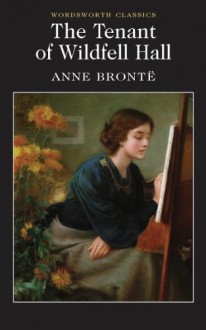Ok, a lot of the titles that are special to me have already been listed, so these are the ones that I would add (listed in no particular order - I love them all equally):
1. Gilded Needles - Michael McDowell
This book blew my socks off. I'm not a horror reader but McDowell has changed my entire outlook on that genre and I consider Gilded Needles to be his best work for me.
2. The Day of the Jackal - Frederick Forsyth
The short explanation for this pick is that it set a standard for me about what a thriller should be. I seriously love this book. It has action but also makes one think. Note - The Bourne Identity did cross my mind as a potential contender but it would be like like bringing a knife to a gun fight. LoL.
3. The Tennant of Wildfell Hall - Anne Bronte
This is the book that tipped Jane Eyre of its pedestal for me. Anne was a badass.
4. Howards End - E.M. Forster
This is a conventional choice. I get it. It's a book that is on many lists already. However, this is Forster's best work and it is a shame that it is on any "Best of List" because that kind of hype usually backfires. At least it does for me. It's one book that also should never be forced on high school students because this book is deeply personal and no one should be forced to discuss how this book makes sense to them. I don't know.
So, yes, this is a "classic" by a dead white guy, I am not going to hold that against the book.
5. A Single Man - Christopher Isherwood
Where compilers of Best of Lists like to include Sylvia Plath and Virginia Woolf, I'd usually like to substitute their entries with Isherwood. Yup. I know. Dead White Guy. But still one of the best books I've read. There is especially one part where I always think that the Bell Jar can bugger off - For me "I am. I am. I am." has nothing on "Waking up begins with saying am and now."
6. The Daughter of Time - Josephine Tey
I love this book for so many reasons: it literally has no plot and yet Tey managed to turn this into a suspenseful murder mystery, showing that actual history is thrilling. Tey challenged the accepted view of historical fact and basically had the guts to challenge Shakespeare and every school history book being taught at the time of writing. Moreover, she made me look at historical paintings in a more enlightened way. I love Tey - as you are sick of hearing by now, I'm sure - and this one started that that journey.
7. Forbidden Journey - Ella K. Maillart
I am listing this because this is the seminal book of Maillart's that established her firmly as my favourite badass travel writer and explorer. She's usually overshadowed by her two-time travel companion (and brother of Bond creator) Peter Fleming, whose books are really shallow and short-sighted in comparison to Maillart's. She's one author that may not have the stylistic skills of her peers, but she's one that has more things to say than most of the travel writers I have read.
8. The Comedians - Graham Greene
Yup. Greene. I cannot leave Greene off a list and I still consider The Comedians his best book. There is no wallowing in Catholic guilt in this one like there is in what is usually listed as his best work. This one faces and exposes the inhumanities of a violent regime gripping Haiti at the time Greene wrote this and pokes it with a very pointy stick.
9. Artful - Ali Smith
Ok. Smith. Artful is not a novel. It's a lecture that is presented as a part-fictional narrative. What is important to me about this one is that it encapsulates how language works and how an author can make language work in a multitude of ways. If I were to compare this another work about a different art - John Berger's Ways of Seeing had a similar effect on me. (But he is usually listed on a Best Of list somewhere and I wanted to pick a book about language and literature.)
10. Embers - Sandor Marai
Maybe an odd choice but this is a book that I read decades ago and it is still with me. It is one of the books that set a standard for other books to follow with respect to creating atmosphere because even thinking about Embers I can smell the wood burning in the fireplace and the pine trees outside.
So, one of the things I noted with some regret while compiling this list is that there aren't many titles on here that originated in languages other than English. There are a lot of authors I adore who did not write in English but the ones I would have picked usually also appear in the Best of Lists - which I take as a sign that I need to make more of an effort to read diversely.
Of those I would have picked, these are my top 5 (again in no particular order):
- Hermann Hesse: Steppenwolf & Unterm Rad (tr. Beneath the Wheel)
- Klaus Mann: Treffpunkt im Unendlichen (no idea if this was translated into English)
- Kurt Tucholsky: any of the satirical works
- Jules Verne: Journey to the Centre of the World
- Alexandre Dumas: The Count of Monte Cristo


 Log in with Facebook
Log in with Facebook 

















